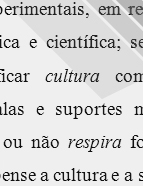

................................
In the last quarter of the 19th century, Teófilo Braga's (1843-1924) work is noteworthy for its methodological innovation derived from French positivism, the organicism and systemic evolutionism of Mill and Spencer, and for attending to the autonomy of the cultural fact, albeit by reifying it. Alongside the prolix commentary on the Comtian system, filtered through Littré's elitism (cf. O Positivismo; Traços gerais da filosofia positiva, [Positivism; Broad outline of positive philosophy]1877; Sistema de sociologia [System of sociology] 1908), Teófilo emphasised the urgency of historicising literary production: História da literatura portuguesa. Introdução [History of Portuguese literature, Introduction], 1870 (and the response to Antero, Martins, and P. Chagas, Os críticos da História da literatura portuguesa [The critics of the History of Portuguese literature]1872, who, according to Antero, accused him of upholding the ethnological school in the study of culture), História da Poesia Portuguesa [History of Portuguese Poetry], 1870-72, Teoria da história da literatura portuguesa, [Theory of the history of Portuguese literature], 1872; 1895, Manual de História da Literatura Portuguesa [History of Portuguese Literature Manual], 1875, História do romantismo português [History of Portuguese Romanticism],1880, Modernas ideias da literatura portuguesa [Modern ideas of Portuguese literature] 1892, without excluding cultural and educational institutions, a study popularised by German and French historiography, and in the wake of J. Silvestre Ribeiro (História dos estabelecimentos científicos, literários e artísticos [History of scientific, literary and artistic establishments] 1871-89), especially in História da Universidade de Coimbra nas suas relações com a instrução pública portuguesa [History of the University of Coimbra in its relations with Portuguese public instruction](4 vols., 1892-1902), which would only be matched a century later in Universidade(s). História. Memória. Perspectivas [University/ies. History. Memory. Perspectives (Coimbra, 1991, VII centennial). From the positivist and sociological matrix, he poured the political and ideological combat, which was at its peak, into História das ideias republicanas em Portugal [History of republican ideas in Portugal] (1880), where the commemorative strategy, the “affective synthesis of modern societies,” supported the republicanism of which he was a significant ideologue.
